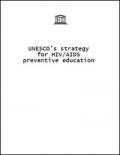Publications - Released in 2001
For the first time there are some signs that the incidence of HIV may be stabilizing in sub-Saharan Africa. New infections in 2000 totalled an estimated 3.8 million, compared with 4 million in 1999. However, this may change if rates go up in countries where they are still relatively low. The total number of Africans living with HIV or AIDS is now 25.3 million. In eight African countries, at least 15% of adults are infected. Here AIDS will claim the lives of around a third of today’s 15-year-olds. During 2000, millions of Africans infected in earlier years began falling ill, and it is estimated that 2.4 million people died of HIV-related causes, compared with 2.3 million in 1999. In Botswana, 35.8% of adults are now infected with HIV, while in South Africa, 19.9% are infected, up from 12.9% just two years ago.
Much is still not known about the epidemic – and much is yet to be learned. But enough is known to act – and we know we must act immediately: to offer treatment, to provide care and maintain institutions in an environment that respects the human rights of all. No country is an island unto itself – the whole world is affected. Action is needed to stop the spread and make for longer, more productive and more dignified lives for the infected and affected. Action is needed to kindle hope and demonstrate compassion. In particular: prevention programmes that are country driven and rooted in communities do work and must be put to work. Preventive education and communication for change in behaviour must be intensified.
Downloads
Organizations
- United Nations Educational, Scientific and Cultural Organization (UNESCO)






